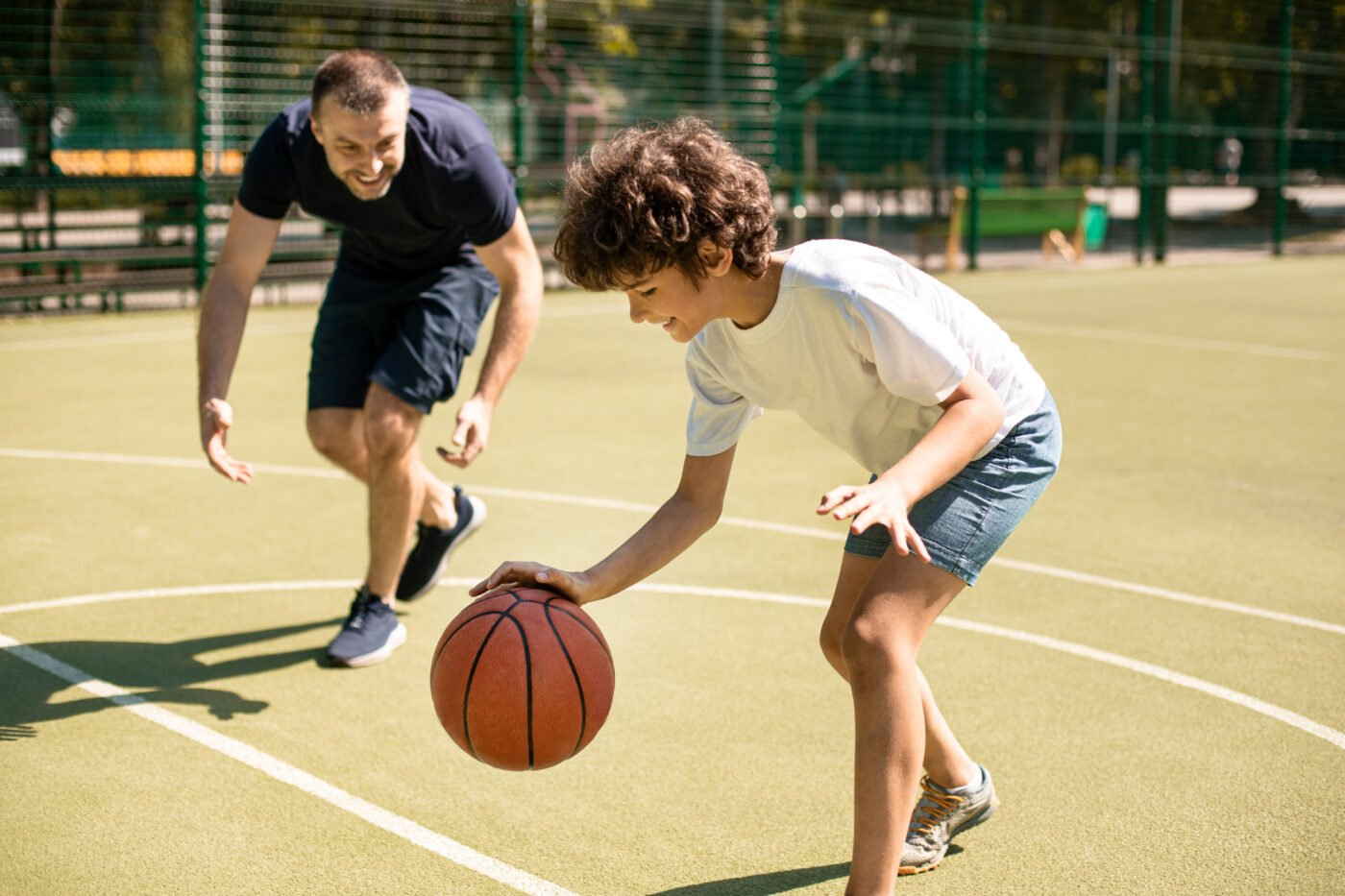One of the first things we hear from our kids is, “Daddy, watch this.” Watching is a huge part of being a dad. We watch them learn to walk and talk. We watch them jump off the side of the pool. We watch them play at the park. We watch them play sports and activities. We even watch them using apps on our phones. Dads, we watch our kids a lot! As we watch, we see the things they are doing well, the things they aren’t, and everything in between, including when they’re playing sports or doing other activities. Knowing when and how coaching your child is a good idea in sports and activities is important but can be tricky.
When we get it right, coaching our kids lets them know we are paying attention and that we are there for them. The question of when and how to coach our kids is an important one, a question I wish I had known to ask from the beginning. Here are some thoughts on how every dad can coach his kids’ sports and activities, even when he isn’t the coach.
When Not to Coach
It’s so natural after watching our kids’ games and activities to want to instruct them about the things they could do better. This makes sense. After all, it’s fresh on everyone’s mind. Immediately afterward seems like the perfect time for a teachable moment. But research shows that when we fail, it often leads to functioning more from the emotional part of the brain while the logical part isn’t functioning at capacity. So our logical tips when our kids are frustrated or sad will not be received and will most likely cause them more emotional distress.
Instead, in that moment, they need words filled with empathy. For example, “I can see you are frustrated about the game. That’s understandable.” Another great thing to say, regardless of performance is “I love watching you play.” This has been a huge winner for my wife and me. As parents, we all want our kids to feel safe to come to us with unhappy emotions. Identifying and sharing in those emotions is what draws our kids to us instead of pushing them away. We attend their sports and activities so our kids know we are there for them. Nothing lets our kids know we are there for them more than empathy.
When to Coach
Sometimes we don’t need to coach because we don’t have the knowledge. In those cases, we need to simply let the actual coach be the coach. But if you do have constructive input, talk to your kids before their games or activities, before their jitters kick in. When my sons played football, I found that giving them my input and encouragement a day or two before the game was best. Their brains and bodies were more in tune with receiving instructions.
I also have found that questions work well because questions require kids to process the information better than instructions. As our kids became teenagers, we would sometimes ask for permission before giving them our input. For instance, we would ask, “If I had some thoughts about your swing, would you want to hear them?” Yes, sometimes we got straight-up nos. But curiosity often got the best of them, and they said yes.
Coach when your kids can receive it; empathize when they cannot.
Sound off: When do you find is the best time to coach your kid?












Huddle up with your kids and ask, “When is the best time for me to help you with____________?”